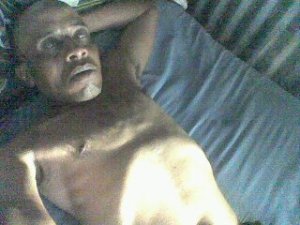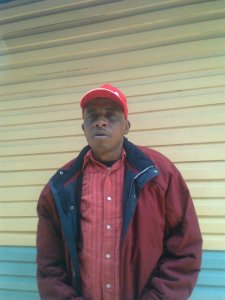“I don’t want my illness to have been in vain. I want it to serve as a strength and hope to the people that I meet who have and are going through TB especially MDR-TB” says a hopeful Eddie Chichi who fought and survived MDR-TB.
Multi Drug Resistance Tuberculosis commonly referred to as MDRTB is TB that is resistant at least to isoniazid (INH) and rifampicin (RMP), the two most powerful first-line anti TB drugs. MDR- TB develops during treatment of fully TB when the course of treatment is interrupted and or the levels of drugs in the body are not sufficient to kill the bacteria. This can happen for a number of reasons the main one being that a patient may feel better and halt their antibiotic course, or maybe drug supply may run out or become scarce or the patient may forget to take their drugs consistently or from time to time as required. Similarly, MDR-TB is spread from one person to another as a TB strain that is already resistant to some anti-TB drugs.
Whenever people talk of MDR-TB, one name will always certainly crop into mind, that of Eddie Chichi, who has had to bear a lone, long and painful fight with MDR-TB. Eddie, who has had to temporarily self exile himself from his family so as to avoid the risk of exposing and or infecting them with MDR-TB; Eddie, who for the last 32 months has had to bear so many challenges while on MDR-TB treatment program after living with resistant TB for over 10 years. Eddie who once entertained revelers in Malindi as a Disk Jockey (DJ) and who once gave diving instructions to tourist who came to the coastal town of Kenya besides teaching them how to animate. Eddie, who is now a TB activist working as a volunteer at Kangemi health Centre where he helps spread awareness on issues related to TB such as the importance of adherence to TB treatment among other duties.
It was in 1996 after his father’s funeral that the cough started, initially he ignored it but when it persisted he blindly followed lay advice from his friends who told him to chew “miraa” (khat), while others still told him to take alcohol and smoke. This he diligently did but unfortunately it was a ‘from the frying pan into the fire’ situation, because, despite all these “purported remedies” Eddie’s cough did not improve but rather grew worse with the abuse of these substances.
“I used to smoke 6 to 7 packets of cigarettes in a day little knowing that I was staring into a grave,” Eddie reflects.
In 1998, he was examined and diagnosed with Tuberculosis at Port Ritz hospital in Mombasa and subsequently put on DOTS therapy. DOTS or Directly Observed Treatment Short Course is a treatment therapy used for handling infectious diseases such as Tuberculosis and uses a combination of prescribed drugs to eradicate tuberculosis and or avoid the creation of a drug-resistant strain of the disease. Patients undergoing DOTS therapy are observed while they take medication to ensure that the correct dosage of the drug is given at the right time and also that patients do not stop their medication halfway through treatment. It was extremely hard for him to adhere strictly to his prescribed medicines under this therapy because he would sometimes report at the hospital only to find the nurse away. He would stay and wait for her to no avail.
Nevertheless, the treatment which included 60 injections and other relevant anti TB drugs lasted for 8 months and yet he never got better. From here he moved to a private hospital and this strained him financially because he had to pay for his treatment. Still, he never got better. Then he moved to Voi where he was again put on treatment at the Voi Moi Hospital and still his condition never changed or improved. He had been put on DOTS therapy three different times and yet he never got better.
“I decided then to do what the Doctor told me, to wait upon God’s intervention because at that time the MDR-TB treatment had not been introduced in Kenya.”
Eddie Chichi while battling MDR-TB
Eddie after completing MDR-TB treatment
In 2008, Eddy moved from Voi to Nairobi and was examined at the Rhodes Health Centre where he was found to be having TB. He was referred to Kangemi Health Centre and was again put on treatment. Further test revealed that he was resistant to the first line anti TB regimen and thus having MDR-TB. He was referred to Kenyatta and put on the second line anti TB regimen. He recently finished his medication and he awaits clearance before he can be certified with a clean bill of health.
It was while in Kangemi that Eddie was introduced to KANCO (Kenya AIDS NGOs Consortium) by one of the nurses at the Health Centre. Through KANCO, Eddy has been visiting schools, churches and other public places to create awareness on TB and MDR-TB. He has been helping the Health Centre to collect sputum samples for culture which are taken to the Ministry of Health for laboratory testing, besides offering DOTS with the health care workers at the hospital.
KANCO has been facilitating him with transport and giving him IEC materials on TB which he distributes freely to the public during his outreach awareness campaigns. He has been assisting in tracing defaulters through contact tracing besides intensifying TB case finding through specific target groups.
“KANCO has done a great job in empowering me and that is why I am participating fully on advocacy so that the community can understand that TB can be cured. MDR-TB is a horrible illness and every time I talk to people, I tell them that the value of life is greater than that of the TB bacteria.”
With the support given to him by KANCO he has been giving health talks to the community especially to people infected with Tb on the importance of adhering strictly to anti TB medicines. He does home visits where he follows and traces defaulters and convinces them to go to re-start and or continue with their medications to prevent the disease from becoming resistant.
Eddie has faced numerous challenges while battling MDR-TB among them that his wife left him and neglected their children who are now in the care of his mother, their grandmother. He has had to walk to hospital for lack of transport fare in order to get his daily dose of treatment; he has not only lost weight but the use of one of his lungs. He has lost his source of income and livelihood as he can no longer work in a club as disk Jockey (DJ) because of the conditions that come with the job, for starters nights are cold and patrons will sometimes smoke, which is not good for his health. He can no longer dive by virtue of losing the use of one of his lungs. Simple things like walking, sitting, and talking require him to use a lot of effort and energy and yet he has never given up or lost hope.
Eddie Chichi, the unsung hero who faced and fought TB and finally emerged with hope and the desire to reach and sensitize the community on the effects of TB.
“I don’t want nor would I wish for anyone to go through what I went through, TB is bad so bad yet it can be cured. Don’t ignore that cough, don’t self medicate, just go to hospital when you have a persistent cough you never know you could be avoiding something like what I went through, something called MDR-TB,” He finishes


Feb 06, 2012 @ 09:49:08
Your experience is really touching, i would like to ask if mybe you can visit our company and offer your concelling with free treatment becouse where we work there are alot of people who have TB but they dont know how to handle themselves and the treatment.